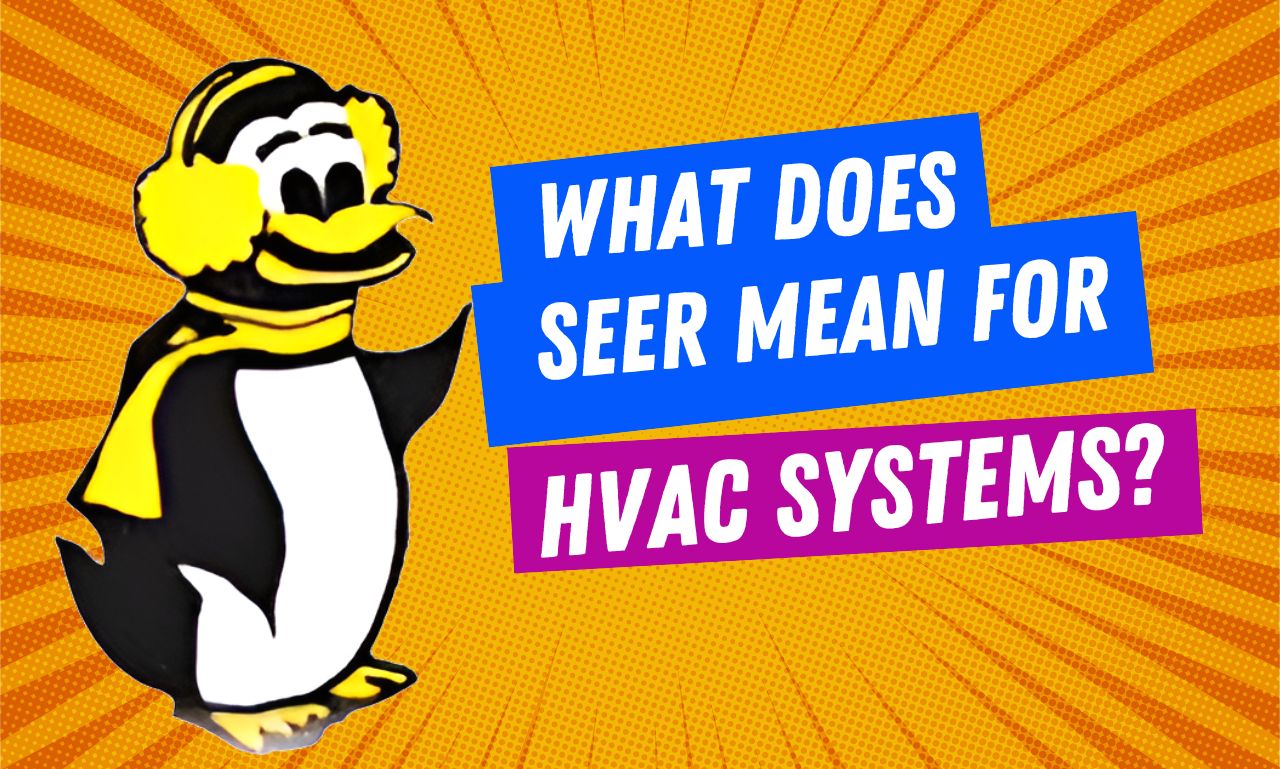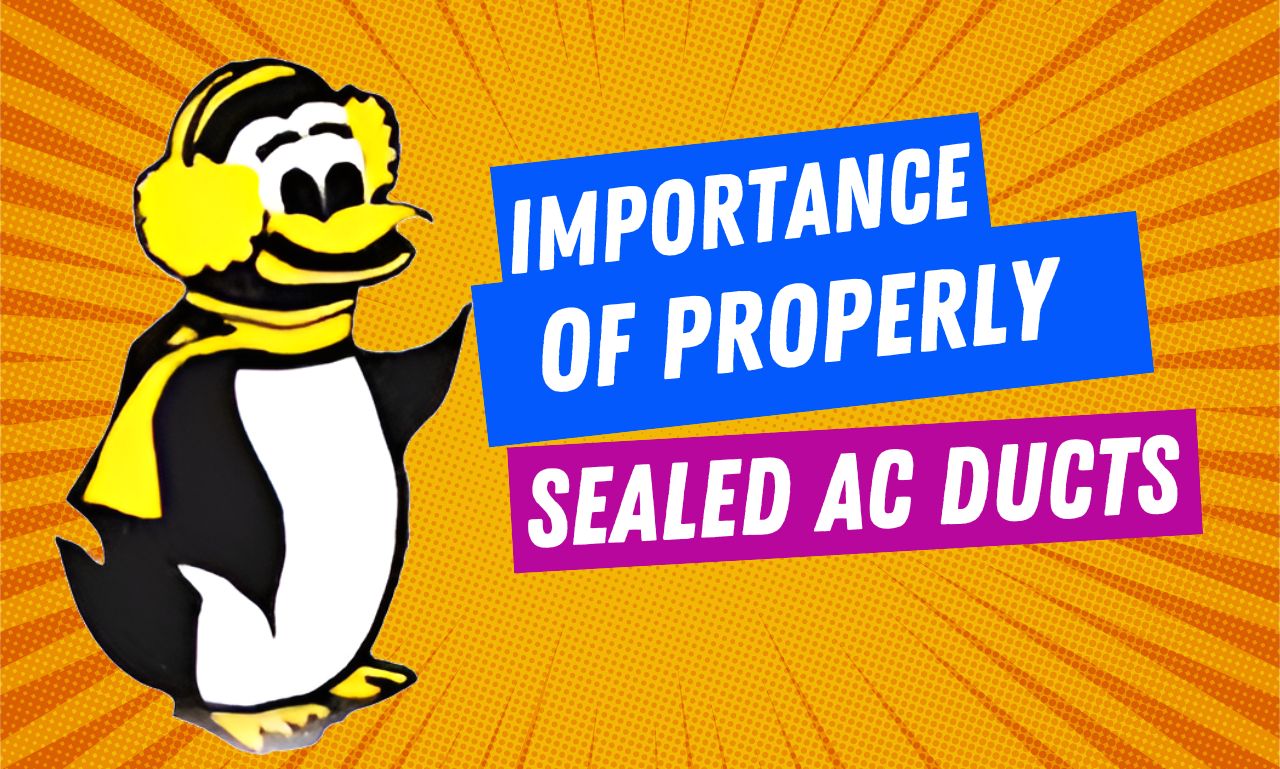What Does SEER Mean When Purchasing an AC Unit?
What is SEER, and what does it stand for?
You may have heard of “SEER” before, but what does SEER mean? SEER stands for Seasonal Energy Efficiency Ratio. It is a rating system used by the US Department of Energy (DOE) to determine how energy-efficient an air conditioner and heat pump are. Similar to how a car is measured in MPG to see how fuel efficient a vehicle is. The higher the SEER rating, the more energy efficient the unit is. In plain terms, a unit with a SEER rating of 18 will use less energy to cool your home than a SEER rating of 16.
Based on this information, you may wonder why all units don’t have a SEER rating of 20 or higher. The answer is that as the SEER rating increases, so does the unit’s price. So, it’s important to weigh the upfront cost of the unit against the long-term energy savings to find the sweet spot for your home.
How SEER ratings are determined
For an air conditioner to have a SEER rating, it has to go through a specific set of tests to the standards established by the Air-Conditioning, Heating, and Refrigeration Institute (AHRI). Once the unit passes these tests, it will be given a SEER rating that ranges from 13 to 21. The most common SEER rating you’ll see is 14, but some units can have a SEER rating as high as 21.
But how are those ratings determined?
First, the air conditioner is tested in a controlled lab setting at varying heat and humidity levels. The results show how much cooling the unit produces per watt of electricity. That number is then divided by the seasonal average outdoor temperature in the region where the air conditioner will be used, resulting in its SEER rating.
So while a higher rating means more efficiency and potential savings on your energy bill, remember that this rating is only valid when compared to other units tested under similar conditions.
The minimum SEER rating required by the DOE is 13, but anything below that isn’t worth your money. You might as well get an evaporative cooler at that point. If you’re looking for an energy-efficient unit, we recommend getting one with a SEER rating of 16 or higher. Anything below that, and you need to get your money’s worth in terms of efficiency.
What do the different SEER ratings mean?
The SEER rating can make a big difference in your energy costs. A high SEER rating means your unit works efficiently, saving you money on your monthly bills.
What is a good SEER rating?
I recommend looking for units with a rating of at least 14. All ENERGY STAR-qualified central air conditioners will have a SEER rating of 14.5 or higher. Typically, older units will have SEER ratings below 10 and can cost you more money in the long run. Higher SEER ratings may come with a higher price tag initially. Still, they will save you money and help decrease your carbon footprint. When shopping for an air conditioner, always check the SEER rating and aim for one that’s 14 or above. Your wallet (and the environment) will thank you.
Is a Higher SEER Rating Better for Your HVAC System?
When it comes to the efficiency of your HVAC system, many people assume that a higher SEER rating is always better. But here’s something most folks need to learn: a higher SEER rating doesn’t necessarily mean better energy savings. Instead, it depends on how often you use your system and in what climate.
For instance, if you live in a hot climate and use your air conditioner constantly, a high SEER rating will likely result in more significant savings. However, suppose you live in a mild climate where you only need to run your heating or cooling sporadically. In that case, the difference in energy usage may need to be more significant to justify the extra cost of buying a high SEER-rated unit.
So before investing in an HVAC upgrade, consider how much you use your current system and whether or not a higher SEER rating would genuinely benefit you.
Which SEER rating is best for your home?
When shopping for a new air conditioner or heat pump, you must find a unit that is the correct size for your home. An HVAC contractor can help determine which size unit is suitable for your home based on factors such as square footage, insulation levels, and window types. Once you’ve decided which size unit you need, you can start looking at units with different SEER ratings to find one that fits both your needs and your budget.
Depending on your location, the US Department of Energy requires a different minimum SEER rating for efficiency. The minimum efficiency standard for HVAC systems in Texas will be raised in 2023.
The old designations of SEER and EER will now be called SEER2 and EER2 to show the new levels of efficiency. Residential central air systems below 45,000 Btu must have a SEER2 rating of 14.3 (15.0 SEER). Residential central air systems 45,000 Btu and above must have a SEER2 rating of 13.8 (14.5 SEER).
How to save money on your energy bills with a higher SEER rating
Are you looking for ways to save money on your energy bills? One important factor to consider is the SEER rating of your air conditioning unit. The higher the SEER rating, the more energy efficient it is. While a higher-rated unit may cost more upfront, it can save you money in the long run with lower energy bills. Some utility companies even offer rebates for homeowners that upgrade to a higher SEER-rated unit. So you will save on your monthly bills and may also be eligible for additional savings through utility rebates. So increasing your SEER rating should be on your radar when it comes to home efficiency and cost-saving.
If you’re in the market for a new air conditioner or heat pump or planning on upgrading your HVAC system, don’t hesitate to contact us at Devard’s. We can help you in choosing the right-sized unit for your home. In addition, we offer competitive prices and financing options to make the switch easier on your wallet!






